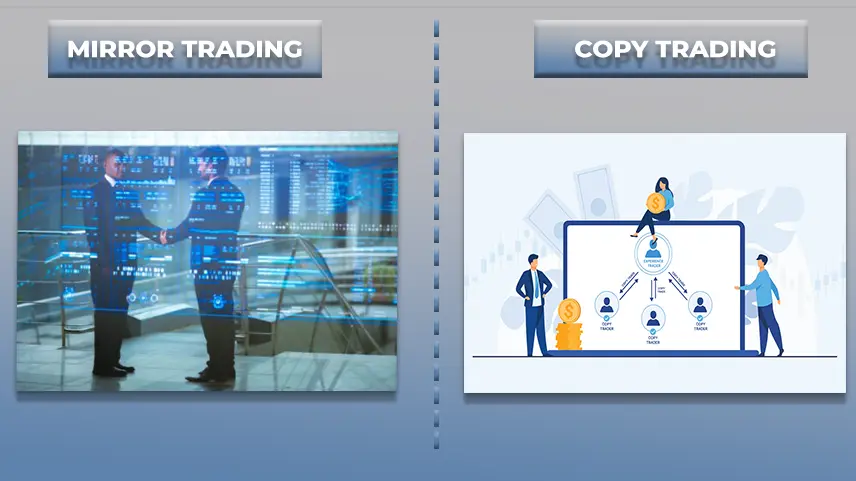
If you're considering trading in the financial markets, you've probably heard about "copy trading" and "mirror trading." Though both techniques entail replicating other investors' deals, there are several notable distinctions between them. We will examine the definitions of mirror trading and copy trading as well as their distinctions in this guide.
Mirror trading is a trading method commonly used in the
foreign exchange (Forex) markets. Most frequently employed in foreign currency
(Forex) markets, mirror trading is a sort of deal selection. By using this
technique, investors can imitate the moves made by seasoned forex traders and
then carry out those same moves in their accounts. Forex trading
employs this particular method. Regular investors can now access mirror trading
through some different methods, while it was initially only available to
institutional customers. An array of comparable trading strategies, such as
copy trading and social trading, have been influenced by mirror trading since
its introduction in the mid- to late 2000s.
You'll be happy to hear that the mirror trading process is
quite easy, but the precise steps will vary depending on the broker you choose.
Funds are deposited into your brokerage account, the account is connected to one of the top trading techniques or traders, and the algorithm is left to run its course. You are not required to conduct your research on trade ideas or transactions.
Open an account, choose the best mirror trading platform for your purposes (see our recommendations later in the post), and deposit a little amount of money (most platforms enable you to start with a minimum commitment of $250).
Simplicity and accessibility: Mirror trading democratizes
the investing environment and opens it up to a wider range of people. Even
those with little experience can trade in the financial markets without needing
to do extensive study or possess in-depth expertise.
"Copy trading" is a simple term that refers to
"copying the trades" of other people. In real life, copy trading
refers to using a trading platform to imitate the trading methods of seasoned
traders.
Although trading may be done in many different ways, copy trading software is especially helpful for novices. By emulating and copying the tactics of more experienced traders, it enables novices to begin trading. Understanding the fundamentals of trading and market impacts is crucial before beginning to trade independently.
Although they serve different purposes, mirror and copy trading are excellent methods to take advantage of the knowledge and abilities of seasoned traders. For individuals seeking flexibility, mirror trading offers a more personalized strategy with real-time replication. Conversely, copy trading provides a simpler, more approachable choice that is perfect for novices. You may select the best strategy for your investing goals and skill level by being aware of the main distinctions between these approaches.